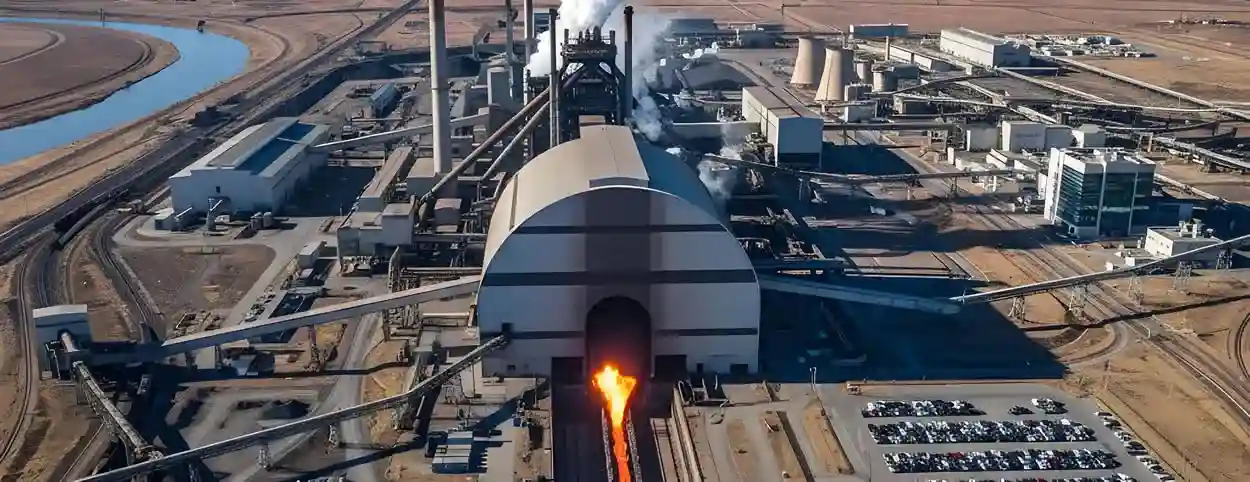
Foundries are essential to the metal industry, producing castings that serve as the foundation for machinery, automotive parts, construction materials, and various industrial products. To improve efficiency, quality, and cost-effectiveness, many foundries integrate rolling mill equipment into their production lines. Rolling mills not only enhance the shaping and refining of cast metal but also optimize mechanical properties, making them an indispensable solution in modern foundry operations.
Rolling mills are primarily used to process cast ingots, billets, and slabs produced in foundries.
Their functions include:
Cast products can be rolled into sheets, plates, rods, or bars according to customer requirements.
Reducing Thickness & Shaping
Improving Mechanical Properties
Rolling refines the grain structure, enhancing tensile strength, toughness, and ductility of cast metals.
Surface Finishing
Rolling helps eliminate surface defects, providing smoother finishes and better dimensional accuracy.
Energy & Cost Efficiency
Rolling mills reduce the need for secondary machining,cutting down production costs and time.
1. Scrap Metal Preparation and Densification:
Foundries utilize vast quantities of scrap metal. Traditional scrap processing can be inefficient. Rolling mill equipment can be adapted for:
Shredding and Compacting: Smaller, specialized rolling mills can be used to further shred and then compact various forms of scrap (turnings, chips, light gauge sheet) into dense briquettes or logs. This increases furnace charge density, reduces melt loss, and improves energy efficiency during melting.
Surface Cleaning: Passing certain types of scrap through pressure rollers can help to dislodge surface contaminants like rust, paint, or slag, leading to cleaner melts and fewer defects in the final castings.
2. Core and Mold Material Preparation:
While not "rolling" metal, the principles of pressure and compaction from rolling mills can be applied to foundry sands and binding agents.
Sand Reclamation and Densification: After shakeout, spent foundry sand can be processed through a series of rollers to break down lumps, remove residual binders, and densify the reclaimed sand, making it more uniform and ready for reuse.
Pre-forming Binders/Additives: Certain solid binders or refractory materials could be pre-formed into specific shapes or densities using a rolling-press mechanism before being introduced into the sand mixer, ensuring more consistent distribution.
3. Post-Casting Finishing and Preparation for Further Processing:
After castings are removed from molds, they often require significant finishing.
Gate and Riser Removal (Cold Shearing): For certain casting geometries and materials, a specialized cold rolling mill with integrated cutting blades could be used to precisely shear off gates and risers, offering a more automated and consistent alternative to manual torch cutting or grinding.
Casting Straightening and Flattening: Some castings, particularly flat plates or structural components, can experience warpage during cooling. A cold rolling mill (similar to a plate leveler) can be used to accurately straighten and flatten these castings, reducing subsequent machining needs.
4. Production of Semi-Finished Foundry Products (e.g., Chill Plates, Inserts):
Foundries sometimes produce their own ancillary components.
Continuous Casting followed by Rolling: For foundries requiring a continuous supply of specific metal profiles (e.g., for chill plates, sacrificial anodes, or special inserts), a mini-mill setup could be integrated. This involves a small continuous casting line producing a billet, immediately followed by a hot rolling mill to shape it into the desired profile, reducing reliance on external suppliers and improving material consistency.
5. Material Characterization and Quality Control:
While not directly part of the rolling process, the precision and feedback mechanisms from modern rolling mills can inspire quality control in foundries.
Automated Dimensioning and Gauging: Rolling mill technology includes highly accurate laser and optical gauging systems. These can be adapted to precisely measure casting dimensions immediately after shakeout or finishing, flagging deviations much faster than manual inspection.
Improved Material Utilization: More efficient scrap processing and reclamation.
Enhanced Casting Quality: Cleaner melts, straighter castings, and more consistent core/mold materials.
Increased Automation and Efficiency: Reducing manual labor in post-casting operations and material preparation.
Cost Reduction: Lower energy consumption for melting, reduced machining time, and less reliance on external suppliers for certain materials.
Better Process Control: Precision equipment allows for tighter tolerances and more predictable outcomes.
Customization: Standard rolling mill equipment will likely need significant customization to suit the specific needs and materials of a foundry.
Scale: Foundries vary greatly in size. The appropriate scale of rolling mill equipment (from small compaction units to larger finishing lines) must be chosen.
Integration with Existing Systems: Seamless integration with existing material handling, melting, and finishing lines is crucial for maximizing benefits.
Safety: As with all heavy machinery, robust safety protocols and operator training are paramount.
By creatively applying the principles and proven technologies of rolling mills, foundries can unlock new levels of efficiency, quality, and control across various stages of their production process.
If you have any product related questions, please feel free to call us at any time

With 30 years of professional experience, we customize efficient and energy-saving rolling mill production lines, providing you with one-stop service from design to installation and commissioning, helping you achieve steady growth in the steel industry.
Go
Top
SHENLONG Machinery · Your Rolling Equipment Expert ·